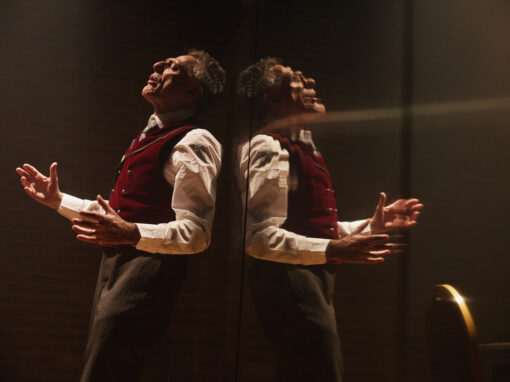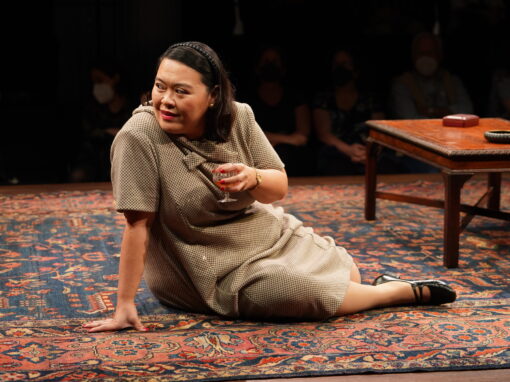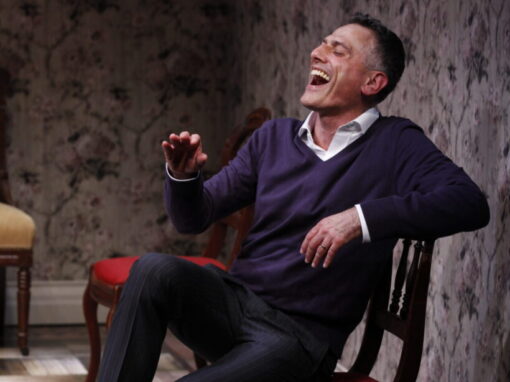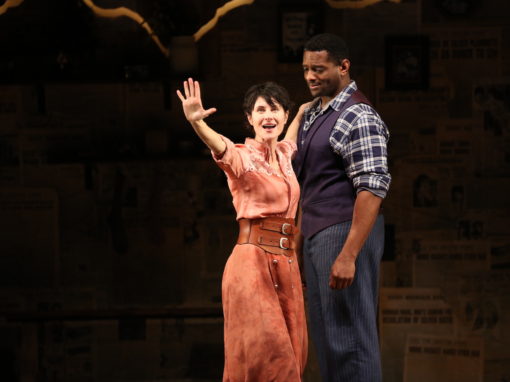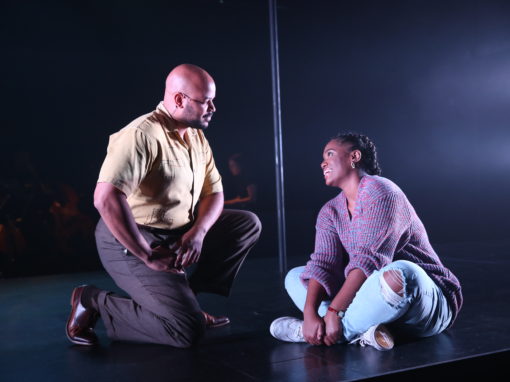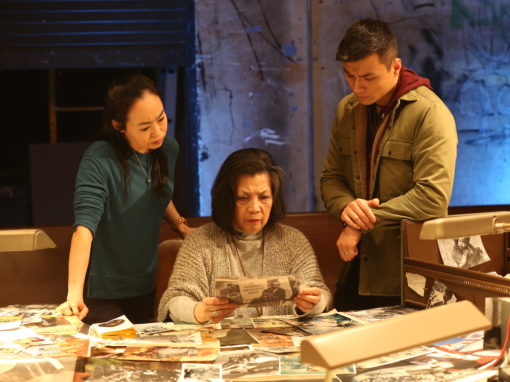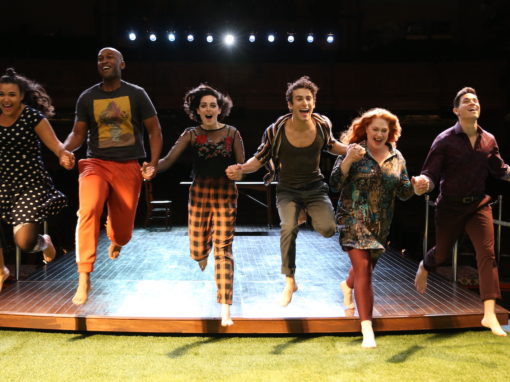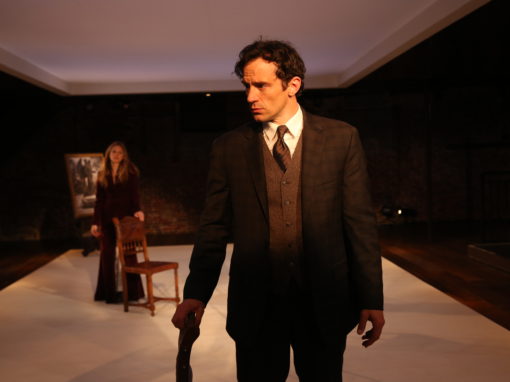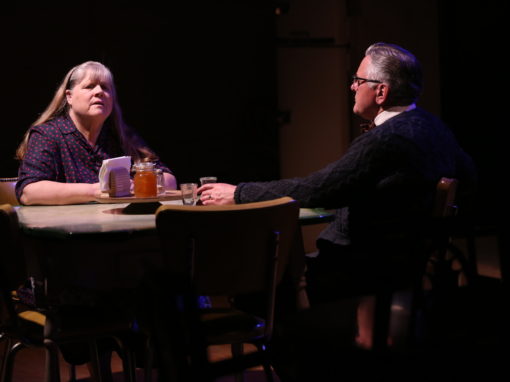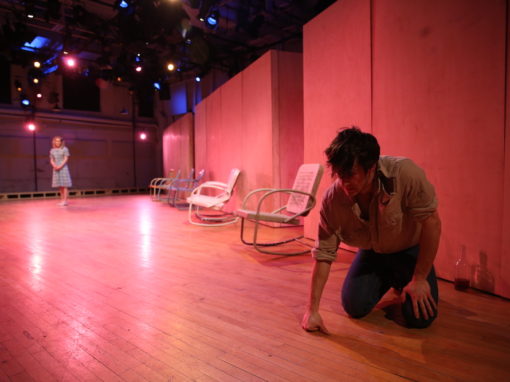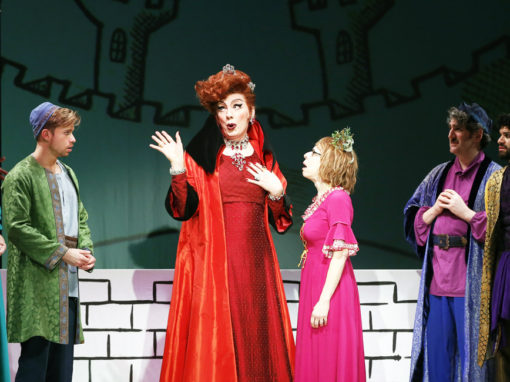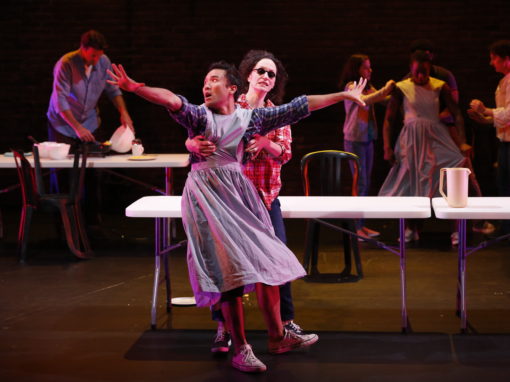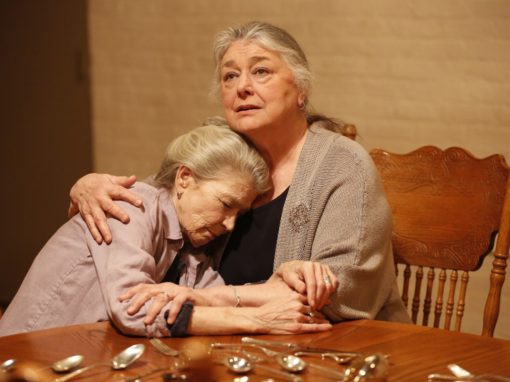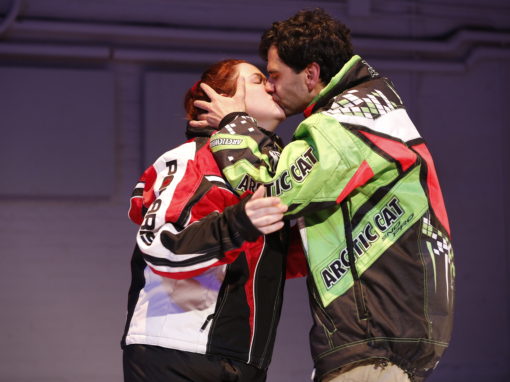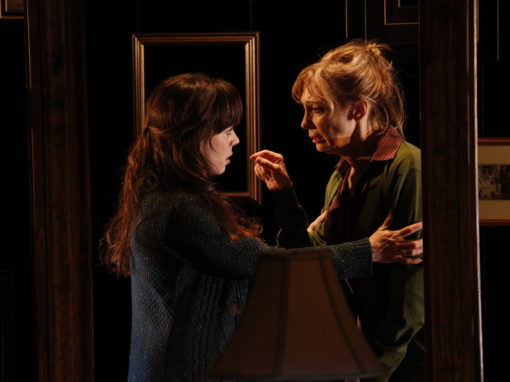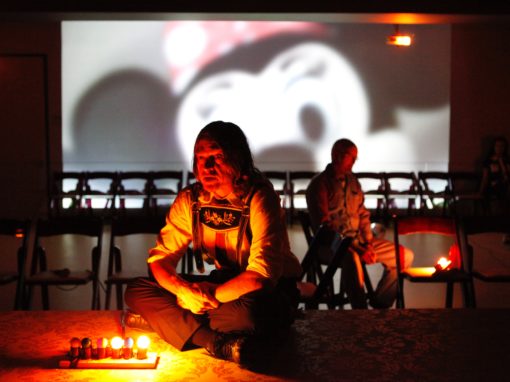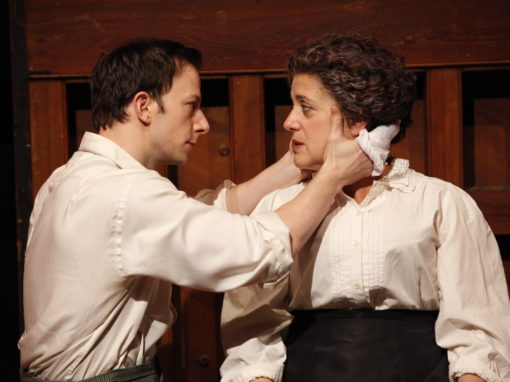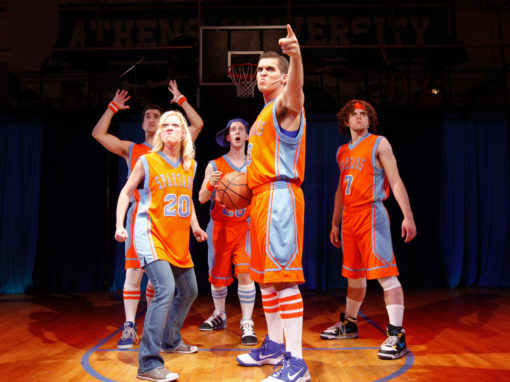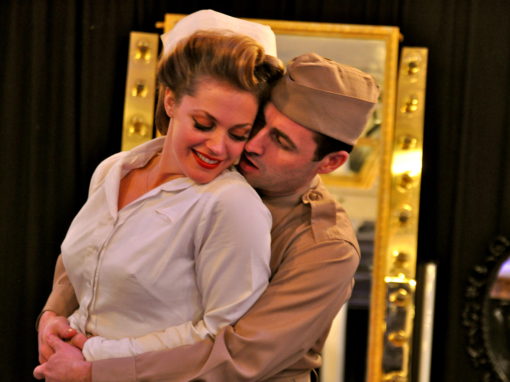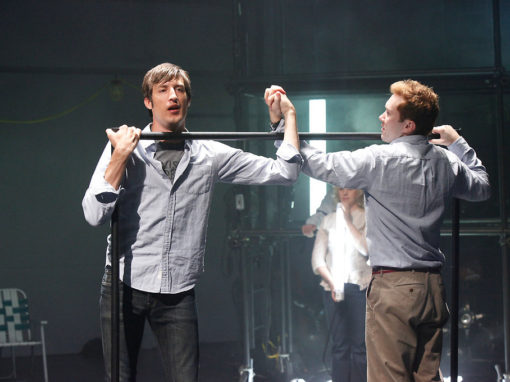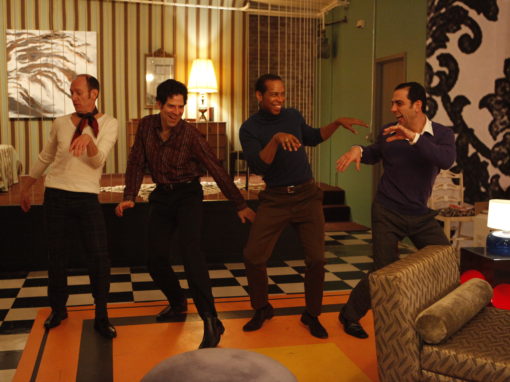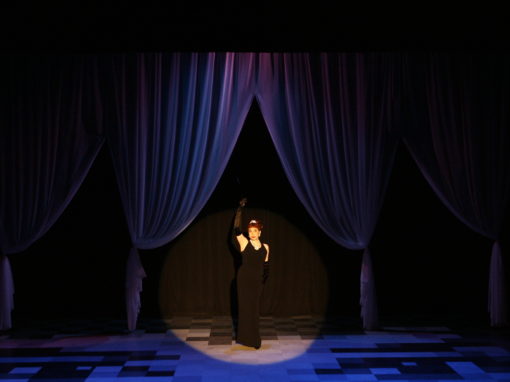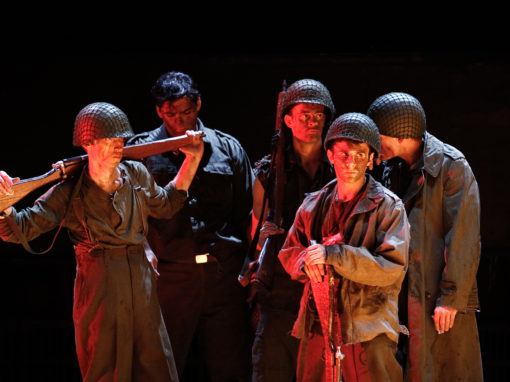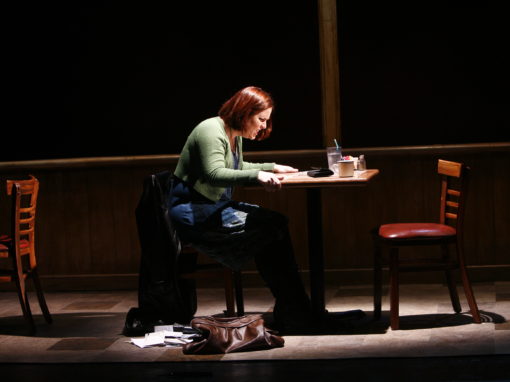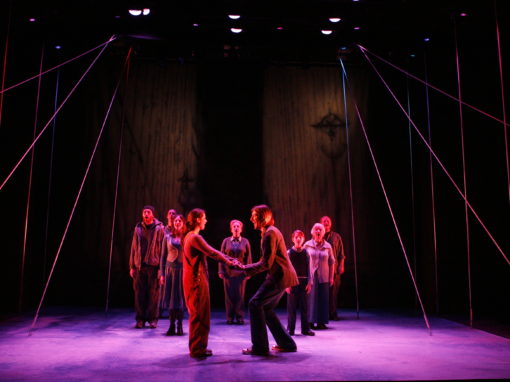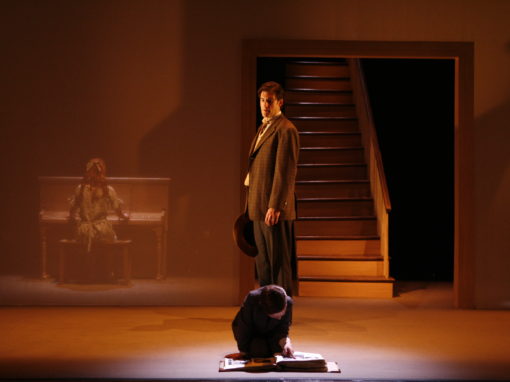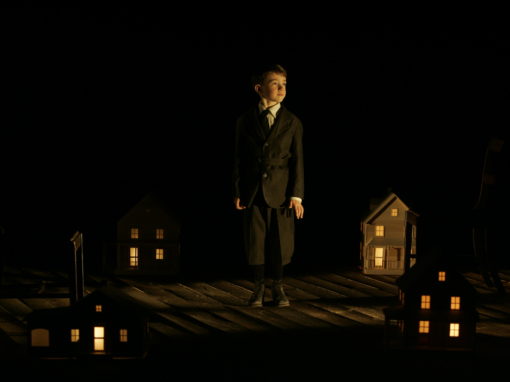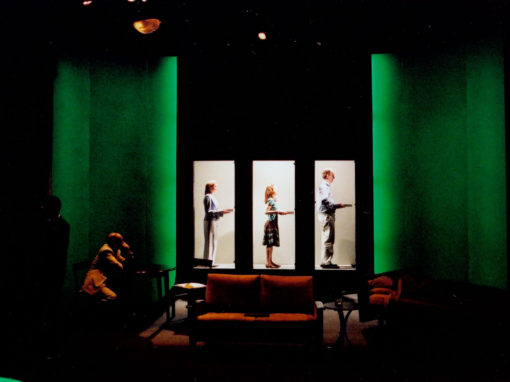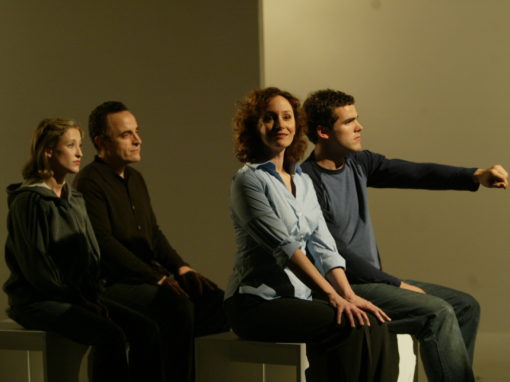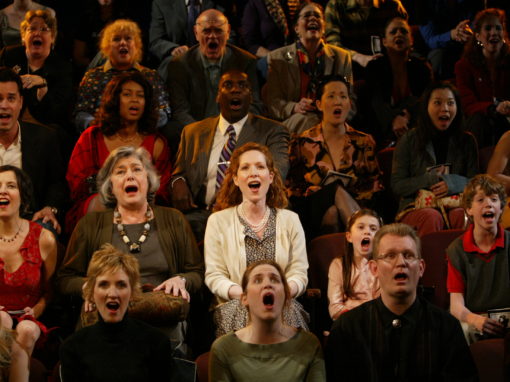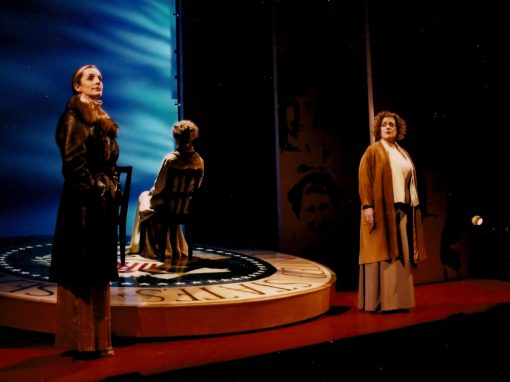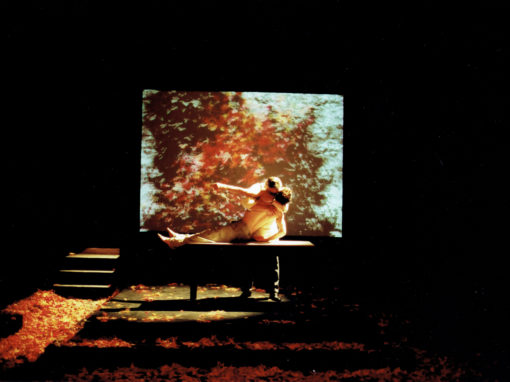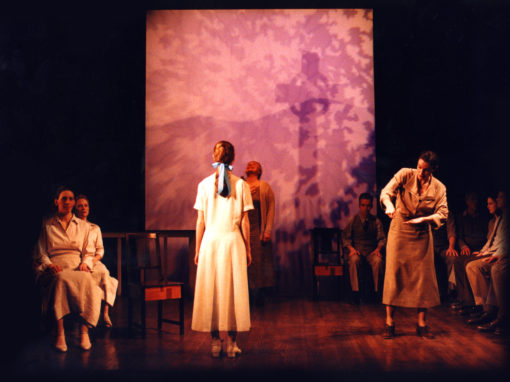The Case for “The” // By Jaye Hunt
In the rehearsal room, director Jaye Hunt is the self-appointed caretaker for a playwright’s words…every one of them.
In the summer of 2017, I got a call from Transport Group Artistic Director Jack Cummings with an interesting proposition. I had assisted Jack earlier that year on William Inge’s Picnic and Come Back, Little Sheba in rep, and now he was asking me to assist him on David Greenspan’s one-man, six-hour Strange Interlude by Eugene O’Neill. The twist? Jack wouldn’t be there for the first half of the process. Jack would be out of town, working on Benny & Joon at The Old Globe, so It would just be David, dramaturg Krista Williams, and me in the room for several weeks. We would be working on acts one through seven, which Jack and David had already staged over the many years they had been working on the show. Then Jack would return to stage acts eight and nine.
When we were working on the Inge shows, my main jobs had been being on book—giving actors the beginning of a line if they called for it—and taking line notes to ensure that the actors were word perfect—no omissions, additions, or substitutions of words. I would also run lines with actors on breaks to help them get more comfortable with the text. I took my jobs seriously! I called myself The Representative of the Inge Estate because I was so precise with my line notes and corrections. If someone said “a” instead of “the,” try again!
To nobody’s surprise, my line strictness was not popular with the actors in the Inge shows. Most of my friends are actors as well, and I’ve spent years running lines with them for auditions and performances and being just as exacting. Let’s just say I don’t really run lines with anyone anymore. So, when I got into the room with David and he told me he wanted to be word perfect, I was worried. Did he really want to be word perfect? Should I stop him at “a” instead of “the?” Surely, the fact that he was doing a six-hour performance of a nine-act play, playing eight characters, meant that he was allowed some mistakes.
Luckily, I was delighted to find out that David is perhaps the only person in the world who cares more about the words than I do. He would stop himself in the middle of a line and say “No, it’s ‘the’ there.” Then we would spend 30 minutes discussing the difference between “the” and “a.” Anyone else would have been driven nuts. But for me, it was like heaven. David was also still in the process of learning acts eight and nine. We would sit at the table and go word by word through them, confirming that he knew every syllable. Spoiler alert: he did. But we still went over them every day, dissecting every choice Eugene O’Neill had made decades ago, down to the punctuation, to make sure David knew it all.
Before we started rehearsals, I had tried to read Strange Interlude. I put up a valiant effort, but I could barely understand it. I’ve always had trouble reading plays without hearing them, and this 350-pager was no exception. The play is full of soliloquies and early 20th century phrases, both of which had me totally lost. I had been nervous for rehearsals, worried that I wouldn’t have any idea what was going on. Days into rehearsal, my fears were completely assuaged. Diving into the text in the way that David and I did, brought it to life like I couldn’t have imagined. When Jack got back and we began working on acts eight and nine, I was so familiar with the text that I felt like they were staging a play I had written. I found myself dropping Strange Interlude quotes into everyday conversation, as though I was an O’Neill scholar.
As we got into performances, David asked me to remain on book for a bit in case he ever needed to call for a line (which he hadn’t in the entire process so far). Of course, he never did, but I got to have the unique experience of reading a play while it was being performed for me. Even though it was a play that by now even I was almost off book for, I learned something new every night as I read it again while listening to David say the words. Through the rehearsal process, I had learned David’s rhythms for all of the lines, so on the rare occasion that he changed his delivery, it was a huge event for the script and me. When he kept everything as it usually was, my eyes would roll through the script smoothly like a newsreel.
Then, as happens in every process, the show opened, and I went away from it for a while. I was still talking like an O’Neill character in my regular life, but I wasn’t deep in the trenches anymore. I wasn’t constantly thinking about O’Neill’s word and punctuation choices. For all I knew, David could be getting every other word wrong without me there to support him. On closing night, I returned to the theater a little nervous. I had never actually seen the play, only listened to it while looking at the script. Of course, I had been around enough that I knew the staging and what all of the sets looked like, but I had never been able to just take it in without the words consuming me. As I watched David’s brilliant performance, I realized that without looking at the script, I remembered large chunks of the lines. The words were still with me.
On all of my subsequent projects, I’ve tried to be as exacting about lines as David and I were. Sometimes it enhances the experience, and sometimes it doesn’t. But I will always look to Strange Interlude as representative of what happens when you care about not only the meaning of the text, but the structure within which that meaning resides. Many people don’t understand the importance of that structure, but for me it’s everything.

About the author:
Jaye Hunt is a multidisciplinary artist. Recent work includes the scold’s bridle (Gingold Theatrical Group), As You Like It (Breaking & Entering Collective), Agnes Bloodfeldt Presents the Human Condition (#serials@theflea), Pop Punk High (le poisson rouge), Solarplexus (Edinburgh Fringe Festival), and Peter Smith’s DIANA (ANT Fest). Co-host of the podcast One More Thing. Mother of two incredible cats. www.jayehunt.com / @hayejunt
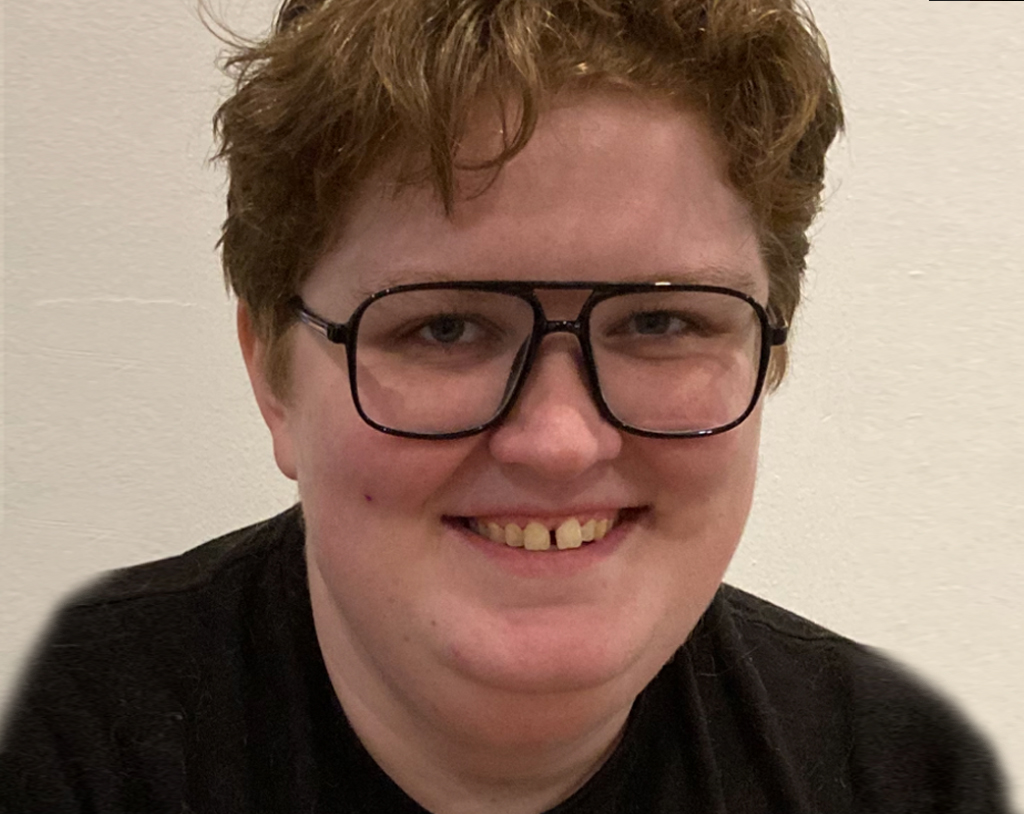
Explore Our Past Shows
